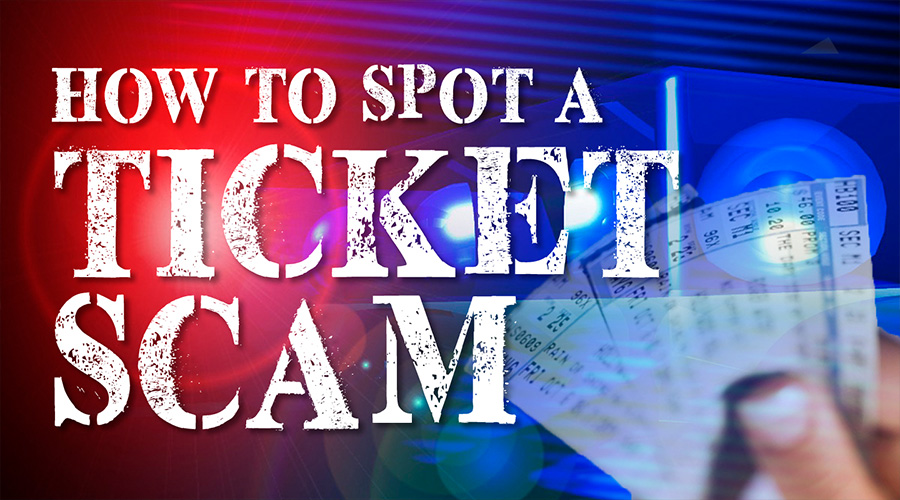The digital age has brought countless conveniences to our lives, including the ability to purchase tickets for concerts, events, flights, and more online. Unfortunately, it has also opened the door to online ticket scams. These scams can leave you without a ticket and significantly out of pocket. In this article, we will delve into what online ticket scams are, how they work, and what measures you can take to avoid falling victim.
What Are Online Ticket Scams?
Online ticket scams involve fraudulent individuals or entities selling fake or non-existent tickets to unsuspecting buyers. These scams are prevalent across various platforms, including:
- Social Media Platforms: Scammers post fake tickets for events on popular social media channels.
- Unverified Websites: Some websites mimic legitimate ticketing platforms to trick users into buying fake tickets.
- Email Scams: Phishing emails offering exclusive discounts on tickets often direct users to fraudulent payment portals.
- Classified Ads: Sites like Craigslist can be a hotspot for scam ticket listings.
The end result? Victims either receive counterfeit tickets or no tickets at all, leading to financial loss and disappointment.
Common Types of Online Ticket Scams
- Fake Tickets: Scammers create convincing replicas of legitimate tickets.
- Duplicate Tickets: Multiple buyers receive copies of the same ticket, leading to denial of entry at the event.
- Non-Existent Tickets: The scammer sells tickets for events that do not exist or that they do not possess.
- Overpriced Resale Tickets: Victims are tricked into paying exorbitant prices for tickets worth much less.
How to Identify Online Ticket Scams
- Unrealistic Deals: If the price seems too good to be true, it probably is.
- Unverified Platforms: Avoid purchasing tickets from websites that lack HTTPS encryption or contact details.
- Pressure Tactics: Scammers often create urgency, claiming that tickets are selling out fast.
- No Refund Policy: Legitimate sellers usually have a clear refund policy; scammers do not.
Measures to Avoid Online Ticket Scams
1. Purchase Tickets From Official Sources
Always buy tickets directly from official event websites, authorized ticketing platforms, or recognized resellers. Check the event organizer’s website for a list of approved ticket vendors.
2. Verify the Seller’s Credibility
If buying from an individual or a third-party reseller:
- Research the seller online for reviews or complaints.
- Use platforms like eXposingScam to check for any red flags associated with the seller’s name, contact details, or payment methods.
3. Use Secure Payment Methods
Avoid payments via wire transfers, gift cards, or cryptocurrency. Instead, opt for credit cards or other secure payment methods that offer fraud protection.
4. Examine the Website’s Authenticity
- Look for HTTPS in the website’s URL.
- Avoid clicking on links in unsolicited emails or messages.
- Ensure the website has clear contact information and a physical address.
5. Check the Ticket’s Authenticity
If you receive a physical ticket:
- Compare it with examples from the official ticketing platform.
- Verify barcode functionality where applicable.
6. Be Wary of Social Media Sellers
While social media can be a great way to find tickets, it is also rife with scammers. Only transact with trusted individuals or accounts with a verified track record.
7. Leverage Anti-Fraud Platforms
Use online tools to verify ticket listings, seller information, or suspicious links. Platforms like eXposingScam maintain databases of known scammers to help users avoid fraud.
8. Trust Your Instincts
If something feels off, it’s better to walk away than risk losing your money.
What to Do If You’ve Been Scammed
- Report the Scam: Notify your local authorities and provide them with all the details.
- Contact Your Bank: If you’ve made a payment, immediately inform your bank or card issuer to potentially reverse the transaction.
- Spread Awareness: Share your experience online to warn others.
Conclusion
Online ticket scams are a growing concern, but with vigilance and the right precautions, you can avoid falling victim. Always verify the authenticity of the ticket seller, use secure payment methods, and rely on trusted platforms like eXposingScam to cross-check suspicious activities. By staying informed and cautious, you can enjoy your events without worry.














